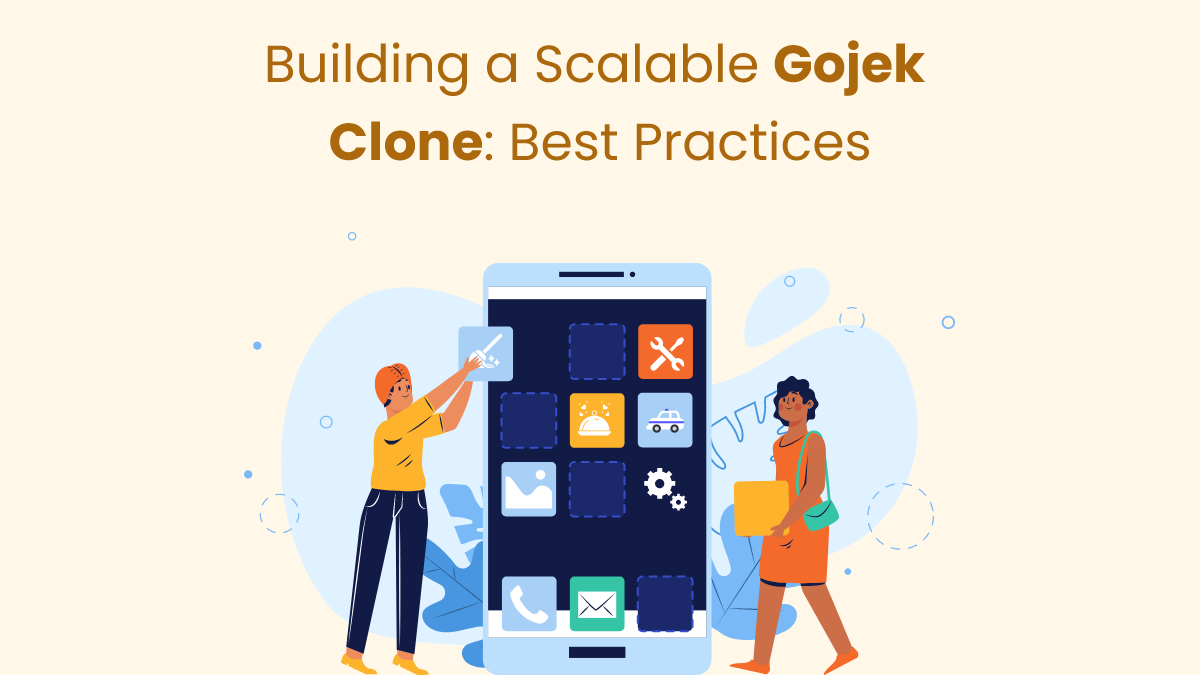Building a Scalable Gojek Clone: Best Practices
 Adrian Evans
Adrian Evans
In the fast-paced world of app development, creating a scalable solution is not just a choice but a necessity. Aspiring entrepreneurs and developers often look up to successful models like Gojek, a super app that offers a wide range of services from ride-hailing to food delivery and beyond. In this comprehensive guide, we will delve into the best practices for building a scalable Gojek clone app that can stand the test of time and accommodate the growing needs of users.
Understanding the Gojek Model
Before embarking on the journey of building a Gojek clone, it's imperative to dissect the Gojek model and understand its intricacies. Gojek started as a ride-hailing service but rapidly expanded into various other services like food delivery, grocery delivery, digital payments, and more. Analyze how Gojek operates, as well as its target audience, geographical reach, and technology stack. Understanding the core principles and functionalities of Gojek will provide a solid foundation for developing your clone app.
Scalable Architecture
Scalability is at the heart of any successful app, especially one aspiring to replicate the success of Gojek. Adopting a scalable architecture is essential to accommodate the growing user base and increasing demand for services. This modular approach not only enhances scalability but also facilitates more manageable maintenance and updates. Leveraging cloud services like AWS, Azure, or Google Cloud enables elastic scaling, allowing resources to be provisioned dynamically based on demand.
Performance Optimization
Performance optimization is paramount to deliver a seamless user experience, even during peak usage periods. Implementing various techniques to optimize performance can significantly enhance the responsiveness and reliability of your Gojek clone. Utilize caching mechanisms to reduce database load and accelerate data retrieval.
Robust Backend Development
A robust backend infrastructure forms the backbone of any scalable app like Gojek. Implementing load-balancing techniques ensures that incoming requests are distributed evenly across multiple servers, preventing bottlenecks and maintaining high availability. Focus on building a resilient backend that can handle concurrent requests efficiently and scale seamlessly as your user base grows.
Secure Payment Gateway Integration
Security is paramount, especially when dealing with financial transactions and sensitive user data. Integrating secure payment gateways like Stripe, PayPal, or Braintree is essential to facilitate seamless and secure transactions within your Gojek clone. Implement encryption techniques to protect sensitive user information, ensure data privacy, and prevent unauthorized access. Conduct regular security audits and updates to stay ahead of potential threats and vulnerabilities.
Seamless User Experience
The success of any app hinges on its user experience, and a Gojek clone is no exception. Prioritize user experience design to create an intuitive and engaging interface that resonates with your target audience. Focus on precise navigation, minimalistic design, and seamless transitions to enhance usability and drive user engagement. Incorporate features like real-time tracking, push notifications, and personalized recommendations to provide a personalized and convenient experience for users.
Conclusion
Building a scalable Gojek clone requires a strategic approach and meticulous attention to detail. By understanding the Gojek model, adopting a scalable architecture, optimizing performance, developing a robust backend, integrating secure payment gateways, and prioritizing user experience design, you can create a clone app that not only replicates the success of Gojek but also surpasses it. Follow these best practices diligently, iterate based on user feedback, and stay abreast of emerging technologies to ensure that your Gojek clone remains relevant and competitive in the ever-evolving market landscape.
Subscribe to my newsletter
Read articles from Adrian Evans directly inside your inbox. Subscribe to the newsletter, and don't miss out.
Written by

Adrian Evans
Adrian Evans
White Label Fox is one of the popular on-demand app development companies that help startups and emerging entrepreneurs enter the realm of hyperlocal commerce without spending much on resources and other costs.